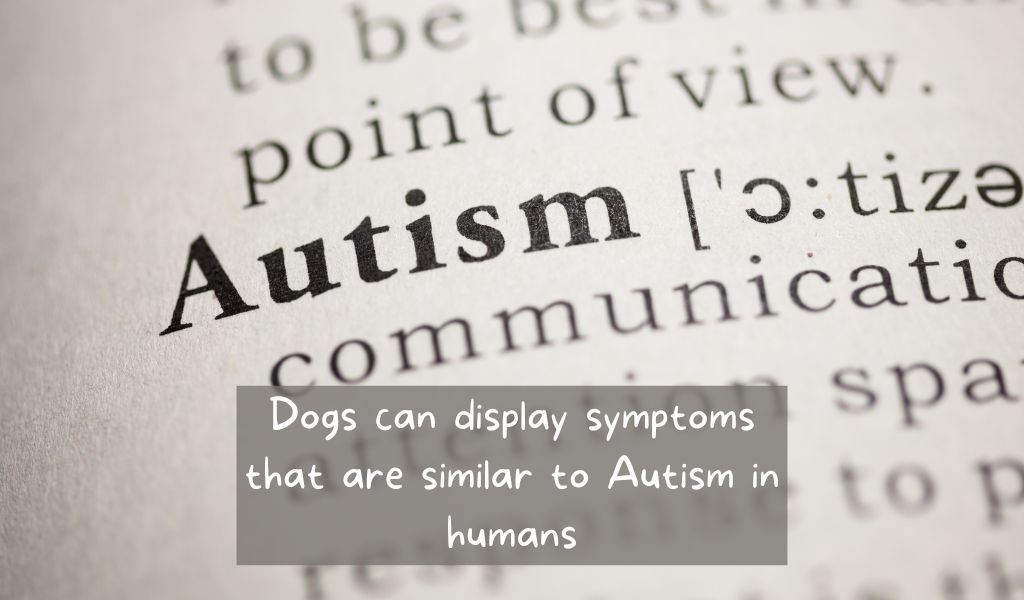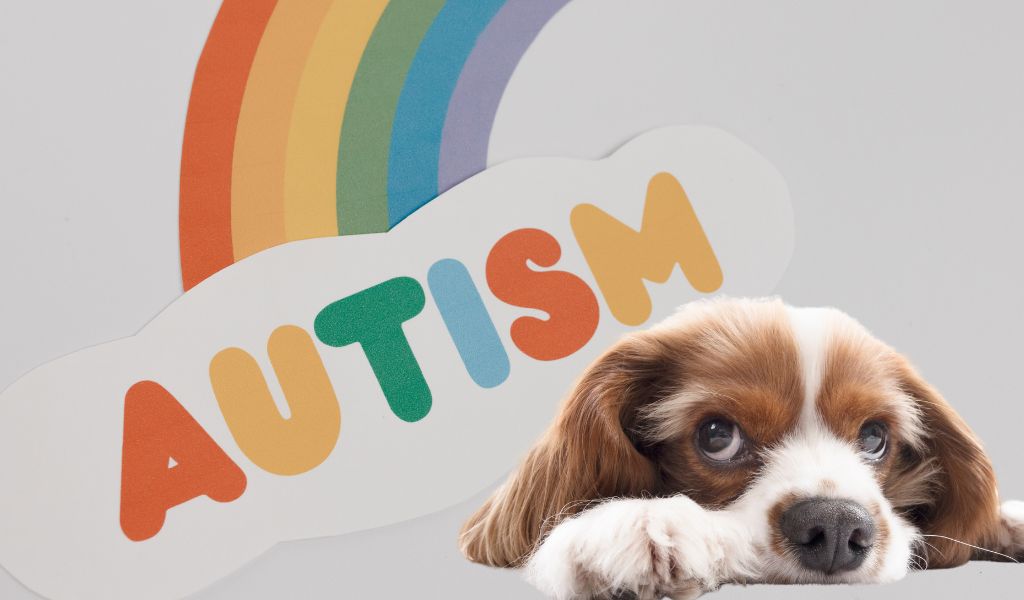Can dogs have autism? This is a question that has been asked by many dog owners.
In this blog post, we will discuss what dysfunctional canine behaviour is and how it relates to autism in humans.
We will also explore the causes of the disorder, symptoms to look out for, diagnosis methods, treatment options and prevention strategies for dogs at risk of developing these behaviours.
By understanding more about canine autism-like behaviours and their potential treatments, we can help provide our beloved furry friends with better quality of life.
While there is still much to learn about this condition, research suggests that some canines may be born with behaviour similar to autism in humans which is termed dysfunctional canine disorder. Causes remain unknown but are believed to be congenital.
What is Dysfunctional Canine Behaviour and how does it relate to Autism in humans?
Dysfunctional canine behaviour is an umbrella term for a range of behaviours in dogs that are similar to autism in humans.
This includes antisocial behaviour, obsessive-compulsive behaviours, communication problems, inappropriate reactions to stimuli, lethargy and decreased physical activity.
It is believed that this disorder is caused by a lack of mirror neurons which help puppies and young dogs to mirror the behaviours of older dogs in social situations.
Without these neurons, a dog cannot develop certain social skills which may lead to disruptive behaviour.
Aside from dysfunctional canine behaviour, there are other disorders in dogs that can produce clinical signs similar to autism in humans such as anxiety, intracranial neurological disease (such as brain tumors or encephalitis), and hypothyroidism.

Causes of Dysfunctional Canine Behaviour
Dysfunctional canine behaviour is a complex issue with many variables in play.
The exact cause of dysfunctional canine behaviour is unknown, but it appears to be congenital meaning that a dog is born with it.
There are other theories that consider that causes of dysfunction include inadequate socialisation, lack of training and reinforcement, underlying medical issues, and environmental influences.
For instance, a dog who was not properly socialised on young age may become anxious or aggressive due to fear of unfamiliar people or animals.
Unresolved physical pain or improper diet can lead to behavioural problems if ignored as well.
In addition, an environment that is too stimulating can also cause dogs to act out because they lack structure.
Regular vet checkups, appropriate exercise and stimulation levels, consistency in training techniques and reinforcement of good behaviour are all key steps to tackling dysfunctional canine behaviour.
Facts at a glance
•It is called dysfunctional canine behaviour when dogs exhibit behaviours that are similar to autism in humans.
• The cause of this condition is unknown, but it appears to be congenital.
• Studies suggest that dogs with this disorder lack neurons called mirror neurons.
• Aside from canine behaviour disorder, there are other disorders in dogs that can produce clinical signs similar to autism in humans.
• It can be difficult to diagnose autism in dogs due to a lack of evidence.
Symptoms of Dysfunctional Canine Behaviour
Despite the lack of evidence, there are certain behavioural indications that might make your veterinarian suspect autism in dogs.
These telltale signs can range from antisocial behaviour to aggression and destruction – all seemingly out-of-character for our four-legged friends.
Other signals include obsessive compulsive behaviours, communication difficulties, strange reactions to stimuli or decreased physical activity accompanied by lethargy or a sudden change in personality.
Diagnosing dogs with Autism-like behaviours
Unfortunately, a diagnosis of autism in dogs cannot be made definitively due to the lack of research on this disorder.
However, when a dog exhibits the signs mentioned above, it is important to contact a veterinarian to ensure that there are no underlying medical issues causing the behavior.
A vet may suggest an MRI or CT scan as well as a behavioural evaluation to further investigate the cause of the behaviour.
Treatment for dogs with Autism-like behaviours
The primary goal of treatment is to provide the dog with coping mechanisms, encourage healthy behaviours and alleviate any underlying medical issues.
Behaviour modification techniques such as positive reinforcement, desensitization and counterconditioning can be used to address underlying anxiety issues.
In addition, medications such as SSRIs may be prescribed by a vet for dogs with more severe symptoms.
Finally, regular veterinary checkups are important to ensure that no physical issues are contributing to the behaviour.
It is also important to provide a stimulating environment and quality nutrition to increase the dog’s overall health and wellbeing.
Prevention strategies for dogs at risk of developing Autism-like behaviours
The best way to prevent autism-like behaviours in dogs is through early socialisation, proper training and reinforcement of good behaviour.
It is also important to ensure that the dog is receiving a balanced diet and regular veterinary checkups.
Finally, providing your pet with an enriching environment with plenty of exercise and mental stimulation will go a long way towards preventing dysfunctional canine behaviours.
FAQs
Can dogs really have autism?
While autism is primarily understood as a neurodevelopmental disorder that affects humans, there is ongoing research and discussion regarding similar conditions in animals, including dogs. However, it is important to note that the concept of autism in dogs is still not fully established and remains a subject of scientific debate.
What are the signs or symptoms of autism in dogs?
Recognizing autism-like symptoms in dogs can be challenging due to the differences in their communication and behaviour compared to humans. Some potential signs that have been observed in dogs include social interaction difficulties, repetitive behaviours, sensory sensitivities, and difficulties adapting to changes in routine. However, these behaviours can also be indicative of other underlying medical or behavioural conditions, so it is crucial to consult a veterinarian or animal behaviourist for an accurate assessment.
Are there any known causes or risk factors for autism-like behaviours in dogs?
Similar to human autism, the exact causes and risk factors for autism-like behaviours in dogs remain uncertain. While genetics may play a role in some cases, environmental factors, prenatal influences, and early-life experiences might also contribute. Research in this area is limited, and more studies are needed to gain a better understanding of the potential causes and risk factors associated with autism-like behaviours in dogs.
Conclusion and final thoughts
Although autism in dogs is not a proven medical condition, there are many signs that can point to dysfunctional canine behaviour and it is important to be aware of them.
Early detection and treatment are key for managing such behaviours and providing the dog with a happy and safe environment.
It’s important to note that if you do suspect that your dog may have an autism-like condition, it is important to seek professional help as soon as possible in order to provide them with the best care possible.




